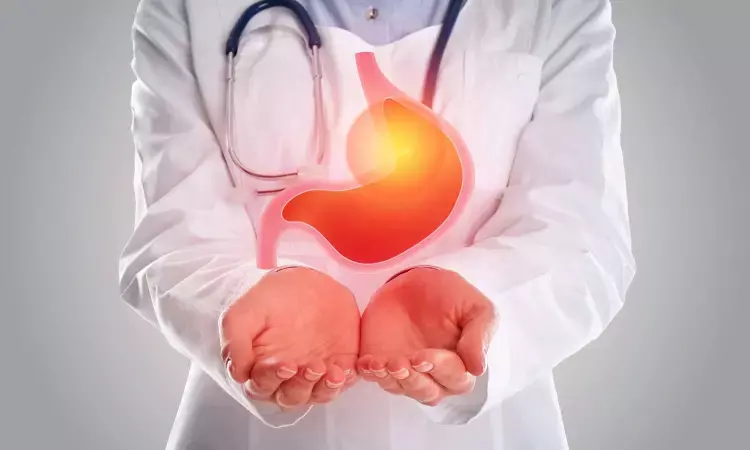- Home
- Medical news & Guidelines
- Anesthesiology
- Cardiology and CTVS
- Critical Care
- Dentistry
- Dermatology
- Diabetes and Endocrinology
- ENT
- Gastroenterology
- Medicine
- Nephrology
- Neurology
- Obstretics-Gynaecology
- Oncology
- Ophthalmology
- Orthopaedics
- Pediatrics-Neonatology
- Psychiatry
- Pulmonology
- Radiology
- Surgery
- Urology
- Laboratory Medicine
- Diet
- Nursing
- Paramedical
- Physiotherapy
- Health news
- Fact Check
- Bone Health Fact Check
- Brain Health Fact Check
- Cancer Related Fact Check
- Child Care Fact Check
- Dental and oral health fact check
- Diabetes and metabolic health fact check
- Diet and Nutrition Fact Check
- Eye and ENT Care Fact Check
- Fitness fact check
- Gut health fact check
- Heart health fact check
- Kidney health fact check
- Medical education fact check
- Men's health fact check
- Respiratory fact check
- Skin and hair care fact check
- Vaccine and Immunization fact check
- Women's health fact check
- AYUSH
- State News
- Andaman and Nicobar Islands
- Andhra Pradesh
- Arunachal Pradesh
- Assam
- Bihar
- Chandigarh
- Chattisgarh
- Dadra and Nagar Haveli
- Daman and Diu
- Delhi
- Goa
- Gujarat
- Haryana
- Himachal Pradesh
- Jammu & Kashmir
- Jharkhand
- Karnataka
- Kerala
- Ladakh
- Lakshadweep
- Madhya Pradesh
- Maharashtra
- Manipur
- Meghalaya
- Mizoram
- Nagaland
- Odisha
- Puducherry
- Punjab
- Rajasthan
- Sikkim
- Tamil Nadu
- Telangana
- Tripura
- Uttar Pradesh
- Uttrakhand
- West Bengal
- Medical Education
- Industry
Long COVID-19 tied to greater risk of GI dysfunction and GERD

The post-pandemic era has raised concerns about COVID-19's long-term impact on health, particularly digestive diseases. The risks of digestive diseases associated with long COVID remain unclear. This study aims to determine the long-term risks of digestive diseases among COVID-19 patients.
According to a recent study published in BMC Medicine, There is a link between COVID-19 and the long-term risk of digestive system disorders. COVID-19 patients are at a higher risk of developing digestive diseases, which escalate with severity, reinfection, and persistence even after 1-year follow-up. This underscores the importance of long-term follow-up strategies for at-risk patients.
In this study with up to 2.6 years follow-up, the COVID-19 group (n = 112,311), the contemporary comparison group (n = 359,671) and the historical comparison group (n = 370,979) predated the COVID-19 outbreak were built using UK Biobank database. The patients in these groups were 112311, 359671, and 370979, respectively. Each digestive outcome was diagnosed 30 days or more after the onset of COVID-19 infection or the index date. Cox regression models were used to determine Hazard ratios and corresponding 95 % CI.
Key findings from the study are:
- Compared with the contemporary comparison group, patients with previous COVID-19 infection had higher risks of digestive diseases. This included ,with HR 1.38, 1.23,1.41,1.21,1.35,1.27 and 1.36 respectively.
- The risks of GERD were increased stepwise with the severity of the COVID-19 infection(acute phase).
- Even after a 1-year follow-up, GERD and GI dysfunction continued to pose risks to COVID-19 patients, with HR of 1.64 and 1.35, respectively.
- Compared to those with one SARS-CoV-2 infection, reinfected patients were at a higher risk of pancreatic diseases with HR 2.57.
- The results were consistent when using historical cohort as the comparison group.
They said that our study added evidence of the long-term impact of COVID-19 on the digestive system. There is a risk of GI dysfunction and GERD requiring long-term follow-up. Our study highlights the need for long-term care and management of COVID-19 patients to monitor potential post-acute complications of the digestive system.
Study strength includes a long-term follow-up period, UK Biobank use, two comparison groups, and subgroup analyses.
Reference:
Ma, Y., Zhang, L., Wei, R. et al. Risks of digestive diseases in long COVID: evidence from a population-based cohort study. BMC Med 22, 14 (2024). https://doi.org/10.1186/s12916-023-03236-4
BDS, MDS in Periodontics and Implantology
Dr. Aditi Yadav is a BDS, MDS in Periodontics and Implantology. She has a clinical experience of 5 years as a laser dental surgeon. She also has a Diploma in clinical research and pharmacovigilance and is a Certified data scientist. She is currently working as a content developer in e-health services. Dr. Yadav has a keen interest in Medical Journalism and is actively involved in Medical Research writing.
Dr Kamal Kant Kohli-MBBS, DTCD- a chest specialist with more than 30 years of practice and a flair for writing clinical articles, Dr Kamal Kant Kohli joined Medical Dialogues as a Chief Editor of Medical News. Besides writing articles, as an editor, he proofreads and verifies all the medical content published on Medical Dialogues including those coming from journals, studies,medical conferences,guidelines etc. Email: drkohli@medicaldialogues.in. Contact no. 011-43720751


